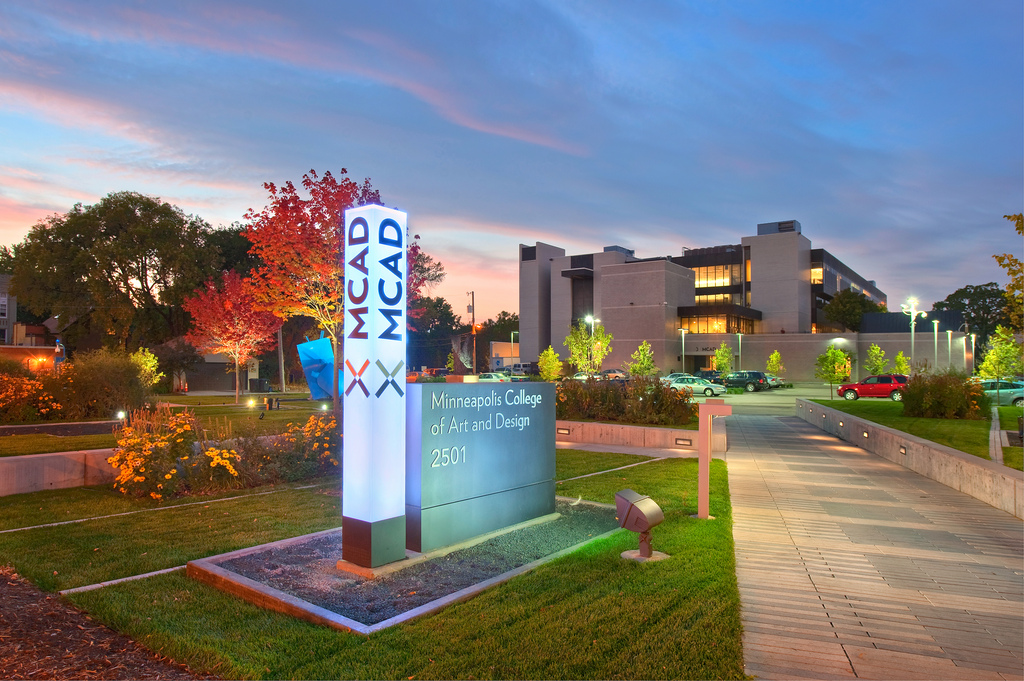Dear MCAD Community,
Please note MCAD’s policy regarding immigration and customs enforcement below. A reminder that all guests must check in with Welcome Desk when they arrive on campus. If you see someone without a visitor badge you can refer them to Campus Safety.
We remain a community committed to our values and supporting each other. If you have any questions, please let me know.
All my best,
Sanjit
Minneapolis College of Art and Design (MCAD) Policy on Immigration and Customs Enforcement (ICE) and Department of Homeland Security Presence on Campus
I. Introduction
At the Minneapolis College of Art and Design (MCAD), we are dedicated to fostering a diverse and inclusive community where creativity and collaboration thrive. Our mission is to provide a transformative education within a supportive en vironment, empowering students of all backgrounds to lead confidently in a dynamic, interconnected world. We uphold values such as transformational ideas and actions, collaborative community, empathetic leadership, and inclusivity.
In alignment with these principles, MCAD is committed to protecting the rights and privacy of all members of our community, including students, faculty, and staff, regardless of their immigration status. This policy outlines the procedures to follow if Immigration and Customs Enforcement (ICE) agents or other external law enforcement agencies come to our campus.
MCAD will not voluntarily share information on immigration status with ICE. MCAD complies with the Family Educational Rights and Privacy Act (FERPA) and the Health Insurance Portability and Accountability Act (HIPAA) regulations by not disclosing private information to entities from outside the campus. MCAD employee information remains confidential.
II. Campus Access and Law Enforcement
MCAD is a private institution; however, certain areas of our campus are accessible to the general public, while others are restricted.
- Public Access Areas: Spaces open to the general public where entry is not restricted. Examples include common areas in campus buildings, outdoor walkways, and parking lots.
- Restricted Access Areas: Spaces that require key card access or have locked doors. Examples include residence halls, administrative and faculty offices, classrooms, and certain facilities.
ICE or other law enforcement agencies may enter public areas without prior permission. However, to access restricted areas, they must present a valid judicial warrant signed by a judge. Administrative warrants from the Department of Homeland Security do not grant permission to enter these spaces without consent from MCAD.
Judicial Warrant vs. Administrative Warrant
A judicial warrant is an official court order signed by a judge that authorizes the search, seizure, and/or arrest. This document will say “United States District Court” at the top and is signed by a judge or magistrate.
A judicial warrant will:
- Specify the specific address to be searched.
- Specify the time per iod in which the search must take place.
- Particularly describe the place or person, or both, to be searched and things to be seized.
- Be issued by a court and signed by a Judge or magistrate.
An ICE administrative warrant is a document, issued by the federal agency, purporting to document their authority to arrest a person suspected of violating immigration laws. These administrative documents are not signed by a neutral magistrate or judge but rather by an immig ration officer (like an ICE agent or immigration judge).
III. Procedures for MCAD Community Members
If you are approached by ICE agents or other law enforcement officials on campus:
- Remain Calm: Maintain composure to prevent escalating the situation.
- Protect Privacy: Do not disclose any personal information about yourself or others. This includes names, contact details, class schedules, or any other personally identifiable information
- Refer to MCAD Campus Safety: Inform the agents that you will contact MCAD Campus Safety to handle their inquiry.
- Contact MCAD Campus Safety: 612.874.3801 / campus_safety@mcad.edu
- Provide your location and a brief description of the situation.
- Await Assistance: A Campus Safety officer will arrive to assess the situation and direct the law enforcement agents to the appropriate MCAD officials.
IV. Designated MCAD Officials
MCAD has appointed specific officials to respond to inquiries from external agencies:
- Pamela Hoffmann, Director of Campus Safety
- Contact Information: 612.874.3728 / phoffmann@mcad.edu
- Jennifer Zuccola, Vice President of Student Affairs
- Contact Information: 612.874.3626 / jzuccola@mcad.edu
- Hope Denardo, Senior Director of Human Resources
- Contact Information: (612) 874-3798 / hdenardo@mcad.edu
These officials are knowledgeable about the necessary warrants and documentation required for information requests and understand the rights and responsibilities of the college.
V. Legal Resources and Support
MCAD is committed to supporting community members who may be affected by immigration enforcement actions. We encourage ind ividuals to seek assistance from qualified legal professionals. Below are some local and national resources:
- Immigrant Law Center of Minnesota
- Phone: (651) 641-1011
- Address: 450 North Syndicate Street, Suite 200, St. Paul, MN 55104
- Website: https://www.ilcm.org/
- National Immigration Law Center
- Phone: (202) 216-0261
- Address: 1121 14th Street, NW, Suite 200, Washington, DC 20005
- Website: https://www.nilc.org/
For additional support, students may contact MCAD Student Affairs at student_affairs@mcad.edu.
VI. Conclusion
MCAD remains steadfast in its commitment to creating a safe and supportive environment for all members of our community. By adhering to this policy, we aim to protect the rights and privacy of our students, faculty, and staff, ensuring that our campus remains a place where creativity and inclusivity can continue to thrive.

